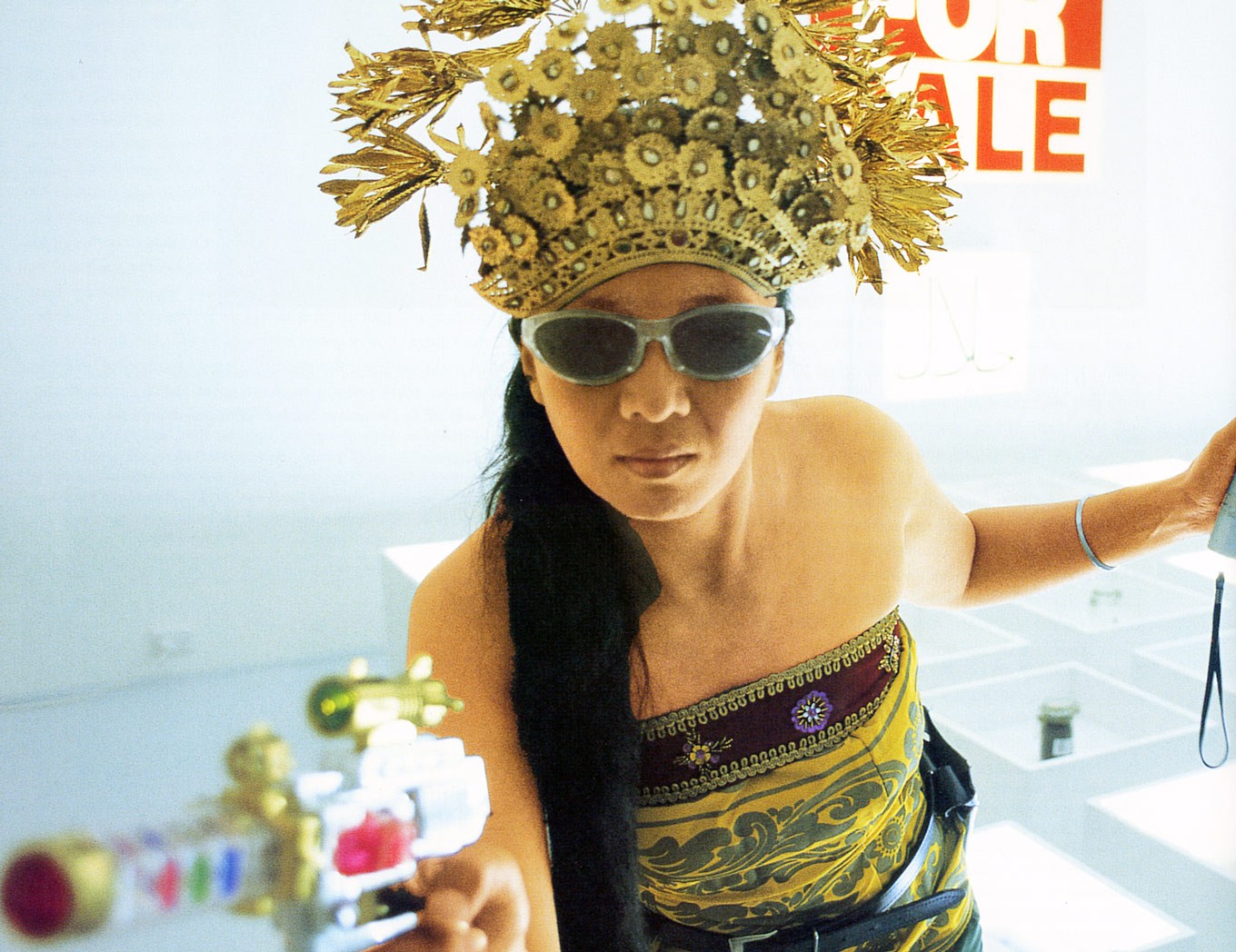Popular Reads
Top Results
Can't find what you're looking for?
View all search resultsPopular Reads
Top Results
Can't find what you're looking for?
View all search resultsArahmaiani stays true to herself
Arahmaiani was surprised to learn that her work, the painting Lingga-Yoni 1993, had returned home nearly 20 years after she sold it to a friend in Thailand.
Change text size
Gift Premium Articles
to Anyone
A
rahmaiani was surprised to learn that her work, the painting Lingga-Yoni 1993, had returned home nearly 20 years after she sold it to a friend in Thailand.
Earlier this year, museum MACAN director Aaron Seeto told her the museum had purchased the painting. Following the success of the First Sight event in August, the museum is scheduled to present a second preview on Sept. 9, presenting the work of six artists — Arahmaiani, Mella Jaarsma, Xu Zhen, Duto Hardono, Heman Chong and Justin Shoulder.
“It is unbelievable! When Seeto said that I thought he was joking,” said Arahmaiani, one of Indonesia’s most seminal and respected contemporary artists.
Read also: Six artists present stunning works at Museum MACAN
When preparing for “Fertility of the Mind,” her first solo exhibition in the United States at the Tyler Rollins Fine Art Gallery in New York, she called her friend in Thailand, asking for permission to borrow the painting for the exhibition.
However, her friend told her the painting was in a poor condition. Dismayed, she made a new version of the artwork for the exhibition in New York, which is now at the Herbert F. Johnson Museum of Art.
Arahmaiani has held 21 solo exhibitions and has taken part in 96 group exhibitions around the world since 1980 but she will never forget Lingga-Yoni 1993.
In August 1994, Islamic hardliners flocked to her solo exhibition at Oncor Studio in Jakarta. They misunderstood her works, Lingga-Yoni 1993 and Etalase (window display), accusing her of blasphemy without understanding context of her works.
Lingga-Yoni 1993 aroused their ire because it featured the Hindu image of male and female genitalia, Malay-Arabic letters saying: “Nature is a book” and a copy of an inscription about King Purnawarman of the first Hindu kingdom in Java.
They also protested against Etalase because they saw the holy Quran, a Buddha statue, a mirror, a pack of condoms, a Coca-Cola bottle, a box of soil, a fan, a small rebana (traditional tambourine) and her photo placed in the same display case.
To the protesters, she had explained that Lingga-Yoni was “the symbol of balance between feminine and masculine energies,” a principle that she said could be found in Animism, Hinduism, Buddhism and Islam.
Born in 1961 in Bandung, West Java, Arahmaiani, whose Javanese ancestors were animists, Hindus and Buddhists before converting to Islam, found the realistic image of the linga and yoni for the first time in Javanese-Hindu temple Sukuh in Central Java.
“They [the hard-liners] thought that pairing the symbol of Lingga Yoni with Arabic script was a blasphemy because they believed Arabic letters were a sacred part of the Quran,” she said.
To the protesters, she also explained that Etalase aimed to criticize capitalism that she said had commodified cultural and religious values. But, they still accused her of blasphemy for putting Al Quran and the condoms in the same display case.
The hard-liners made death threats against Arahmaiani, telling her that, “her blood was halal to be drunk.” Artist Ray Sahetapi, who owned Oncor Studio, protected her.
Prominent figures, including WS Rendra and Emha Ainun Najib, advised her to leave Jakarta. Her friend then protected her at his house in Surakarta, Central Java, for six months until she went to Perth, Australia, to join a residential program.
She lived in Australia for a year and then moved to Thailand. She came home a month before the fall of the authoritarian New Order regime in 1998. But, she sold Lingga-Yoni 1993 to her friend to make money.
Learning of growing intolerance in Indonesia, Arahmaiani remains optimistic that similar protests in 1994 will not repeat themselves, mainly since she had the chance to explain the work’s context through the media.
She is happy her works are appreciated since the criticism in the work is still relevant to the dynamics of recent political events at home and abroad. For her, capitalism is an unfair economic system that has destroyed local cultures and the environment. “We may not turn a blind eye to those facts,” she said.











